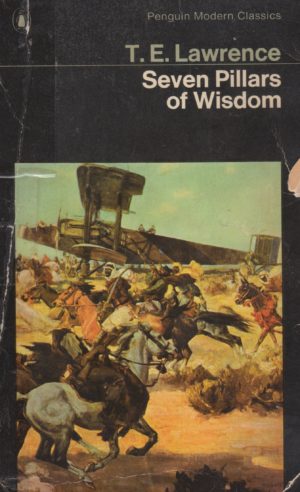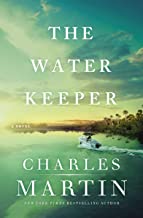
I picked up this book because the author, who’d read one of my Finnish-themed historical novels, reached out and suggested I might enjoy the tale. I did.
The writing in this rather short but sad and engaging story is finely crafted. The three main characters; Tom, an American journalist covering Finland’s Winter War; Paul, the slow-to-move-on-his-emotions suitor of a lovely, single Finnish woman who ends up in the trenches fighting the Soviets; and Tina, the love interest of both men; are all well-drawn and intriguing. The recalcitrance of Paul, the bravado and worldliness of Tom, and the kind, gentle radiance of Tina are all essential to the plot and theme of the book. There is just enough suspense and war and conflict to engage the male half of the readership universe while the relationships and the love triangle will certainly find an audience amongst the fairer sex. But it’s the writing that stands out. Witness this scene set in Karelia at a time when the Soviets are closing in intent on reclaiming land taken by the Finns:
(I)t was too late. Someone was on the front stoop, testing the door. They both clutched the boy and cowered in the far corner. It didn’t take long to break the flimsy lock and three dark figures swept in. Two wore brown coats and heavy boots … The third man lit the lamp on the table and the room danced with light …
See? Great prose. Great story. Great book.
4 and 1/2 stars out of 5. A great introduction to themes repeated and expanded in my novel, Sukulaiset.

OK. This is a fairly light, airy read despite chronicling the travails our President-Elect and his second wife have endured. Much of the book repeats stories we already know: The accident that claimed Joe’s first wife and daughter; Joe’s prior ill-fated early runs for the White House; the tragic death of Beau to brain cancer. But there’s still a reason, if you are skeptical about mainstream media’s claims that Joe Biden is an honest, good, God-fearing, lovely human being: His wife provides ample evidence of all of those attributes as well as similar humility from President Obama:
“No one knew that President Obama was going to sing ‘Amazing Grace’ …It was astonishing to hear-the raw emotion in his voice, the kindness and humility from the most powerful man in the world. In that moment, every one of us was united in grace, in love, in allegiance against evil … After the memorial (for Rev. Pickney, a victim in the Charlestown, SC church murders) the President, the First Lady, Joe, and I met individually with the families of the Charleston Nine .. In small rooms, we hugged the family members. They spoke in low voices and told us stories about the lives lost.”
This is not a great book. But folks who doubt we now have a man of courage and faith and honor to replace the disaster of the past four years, should read this book.
3 and 1/2 stars out of 4.

I grew up fascinated by Lawrence of Arabia. Consequently, I always wanted to read his account of the Great War in Palestine. Seven Pillars has been heralded since it was first published in 1926 in a massive, leather-bound, hand-autographed mammoth edition of over 260,000 words, as one of the great books of the 20th century. I’ve finally had the chance to read the excerpted, slenderized paperback of Lawrence’s recollections of war and his service and I don’t agree with the pundits. While Seven Pillars is certainly a learned treatise on the tactics, the politics, the language, the customs, and the religion of the era and the region, I found the complex nature of the hundreds of names and characters to be almost impossible to follow. The maps really don’t help put places and names and the various events into context. That said, I did learn some things.
For example, I learned that the scene from the movie, Lawrence of Arabia, where Lawrence is raped by a Turkish officer, while replicated here in prose, is, if you consult other sources, pure fiction. No one ever verified the incident took place. On a positive note, watching the film. one gets the idea that all of the action has something to do with what we call present day “Arabia”. The book makes it clear that the backdrop for T.E.s experience wasn’t Saudi Arabia but Syria, a place still in the news in terms of conflict.
In the end, despite the accolades, I was disappointed. It’s of interest to Mark the historian and the political scientist in that the beginnings of our present-day difficulties have their origins in decisions made post-WW I in the Middle East by European powers. Still, such revelations cannot compel me to consider this to be one of the greatest books of the 20th century.
3 stars out of 5.

I’ll make it quick. Great book. Read it. Or listen to it while driving a Big Ass Camper across America, which is what René and I did. The plot and the characters and the pacing are all spot on. Anyone who loves psychological drama will be impressed.
4 and 1/2 star out of 5.

Another good “listen” on our way across country. Again, I’d rather read such great prose and characterization but I had to settle for listening to it on Audible. There’s been some controversy attached to a non-Mexican writing such a detailed and considerable tale of Mexican immigration. Too bad. I wrote a story of the life and loves and travails of a contemporary African American woman (Esther’s Race) and I remain proud of my effort as Ms. Cummins should be of hers. Nicely done.
5 stars out of 5.

OK, René. Your batting average for selecting audio books is still pretty good despite leading off with this one on our epic journey to Arizona. No. Don’t read it. This tale, which has as its premise sex trafficking, is so cartoonish, so outlandish in its depictions of the protagonist’s abilities and attributes, you’d swear you were listening to an episode of The Avengers (the superheroes, not the old British TV show). Don’t waste your time on this one, folks. The best that can be said is it filled up the time between Duluth and Kansas City with noise. Beyond that, it wasn’t worth a listen.
2 stars out of 5.
Peace.
Mark


